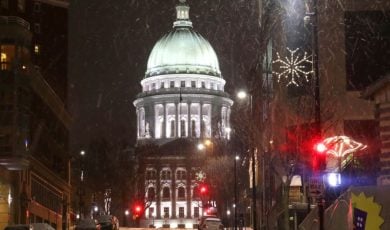On June 30, lawmakers passed a bill that outlaws sweepstakes casinos in the Garden State. Gov. Phil Murphy has not yet signed the bill into law but he may not need to. If he takes no action, the bill will automatically become law on Aug. 14, effectively bringing sweepstakes casino operations in New Jersey to an end.
Fight or Flee: How Operators Respond to NJ’s Sweeps Ban
The past five years of US gaming have shown that operators typically respond to legal pressure in one of two ways: they either admit defeat and exit the market, or attempt to find a way to remain in the state.
For example, many daily fantasy sports (DFS) operators have continued to operate in states with legal sports betting, even though their offerings closely resemble traditional wagers. They’ve survived by exploiting technical differences that prevent them from being classified as sports betting under some state laws.
However, early signs suggest sweepstakes casino operators will choose to exit New Jersey. VGW, the parent company behind popular sweepstakes platforms such as Chumba Casino and LuckyLand Slots, has already begun phasing out its New Jersey operations. Chumba has updated its terms and conditions to list New Jersey among its excluded states.
While other sweepstakes casinos, such as McLuck and Pulsz, currently still list New Jersey as a participating state, that status is likely to change by Aug. 14.
Could a New Version of Sweepstakes Casinos Emerge? It’s Unikely
Most sweepstakes operators are expected to leave the state by Aug. 14. However, the new legislation does not ban sweepstakes casinos outright.
In theory, a sweepstakes platform could still legally operate in New Jersey—but only if it meets strict requirements, including:
- Players must be able to participate without spending any money.
- Entry fees must be offset by “the purchase of food, non-alcoholic beverages, or other merchandise not exceeding $20 in value.”
- Sweepstakes results must not be based on the outcome of sporting events.
- The site must clearly display sweepstakes rules.
- Prizes must be reported as taxable income.
- Players under 18 cannot claim prizes over $1,000 without parental or guardian consent.
- The odds of winning must be the same whether someone pays to enter or plays for free.
If an operator violates any of the provisions, the bill empowers both the Division of Consumer Affairs and the Division of Gaming Enforcement to impose fines: $100,000 for a first offense and $250,000 for subsequent violations.
In short, the complexity of the law’s requirements—and the significant financial penalties for noncompliance—will likely deter sweepstakes operators from continuing business in New Jersey.








